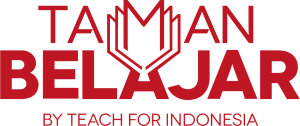- Pengajar: Teguh Amor Patria, PhD
Introduction to Heritage Tourism
This course offers a comprehensive critical examination and systematic evaluation of the dynamics of heritage and tourism development from both social sciences and management perspectives. It integrates both global and local perspectives in theorizing and managing heritage tourism. While focusing on reviewing and analyzing key academic concepts and debates, including authenticity, commodification, globalization, and heritage interpretation, the course also discusses and evaluates topical issues, such as sustainable development and marketing strategies. It theoretically locates heritage discourses in the analysis of heritage tourism development and management drawing on various perspectives, from tourism, heritage studies, sociology, anthropology, politics and geography to management and marketing studies.
The contents of the course include:
- Cultural Heritage and Tourism
- Consumption of Culture: Heritage Demand and Experiences
- The Heritage Supply: Attractions and Services
- Spatial Perspectives and Heritage Resources
- Looking for Something Real: Heritage, Tourism and Elusive Authenticity
- Protecting the Past for Today: Heritage Conservation and Tourism
- Telling the Story: Interpreting the Past for Visitors
- Planning Principles, Sustainability and Cultural Heritage Destinations
- Marketing the Past for Today
- Raising Revenue and Managing Visitors
This course can complement the Introduction to Heritage Interpretation course, particularly to enrich the Telling the Story: Interpreting the Pasts for Visitors, to increase the experience of heritage tourists.
Enrolled students: 1
- Pengajar: Teguh Amor Patria, PhD
Introduction to Heritage Interpretation
This course teaches the foundation of heritage interpretation. Interpretation is defined as “A mission-based communication process that forges emotional and intellectual connections between the interests of the audience and the meanings inherent in the resources” (National Association of Interpretation) and usually is used as an educational method to teach about the meanings of heritage to the audiences. This course teaches the basic concepts and theories about heritage interpretation, and technical skills in how to plan, implement, and evaluate interpretive programs.
This course consists of 10 modules, including:
Reviewing the Basics
Exploring Our Roots
Interpretation Theory Part One
Interpretation Theory Part Two
Program Preparation Part One
Program Preparation Part Two
Message Delivery Techniques
Program Delivery Part One
Program Delivery Part Two, and
Self-Improvement
This course can be used to complement a Guiding course. The materials in this course will be beneficial to the governmental, private, public-private, non-governmental. Specifically, the materials in this course will be beneficial to educators (teachers and lecturers), tour guides, hobbyists, students, naturalists, and many others, or anyone who simply wants to learn basic knowledge of heritage interpretation. It is encouraged that students of this course practice the skills beyond the course to have a more thorough understanding about the foundation of interpretation.
